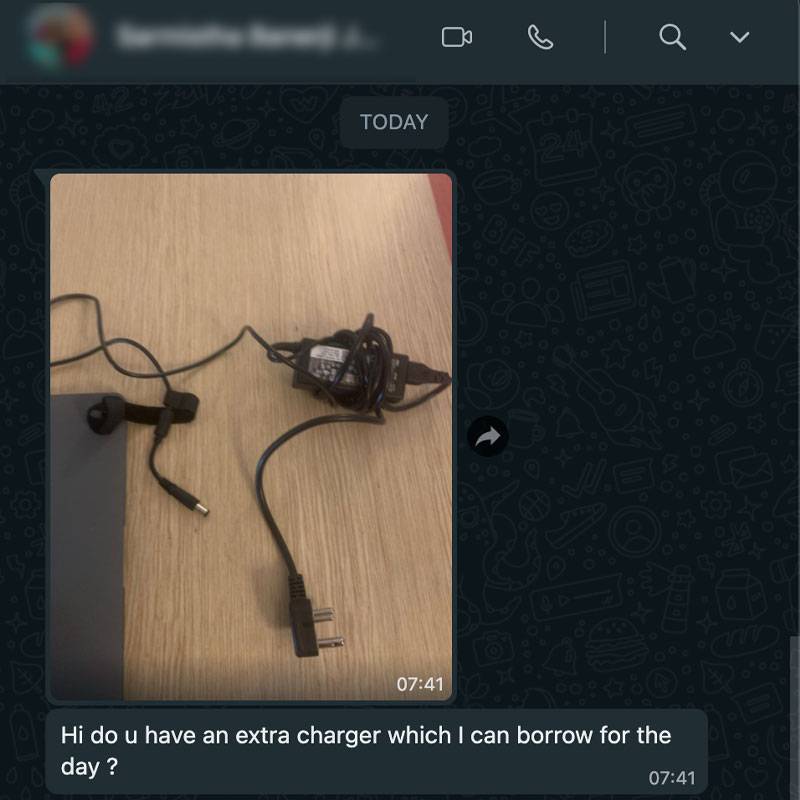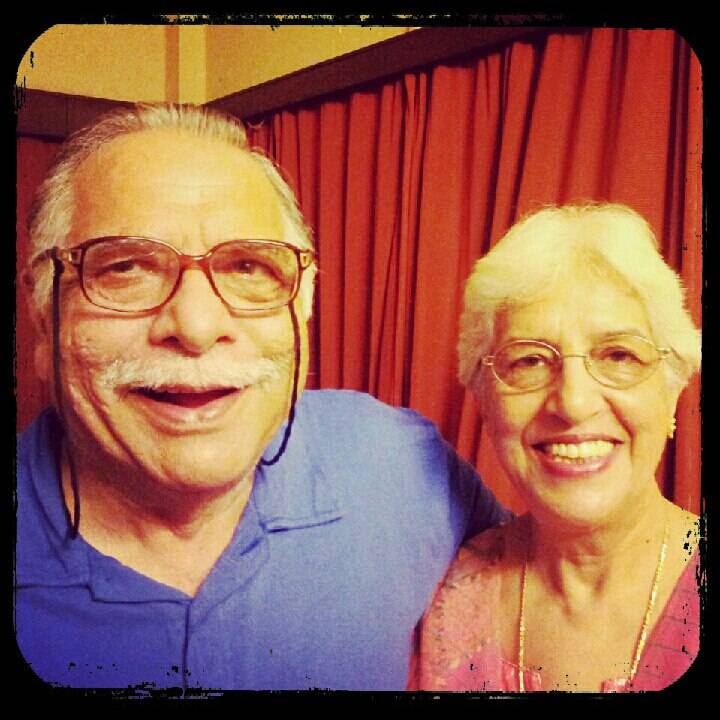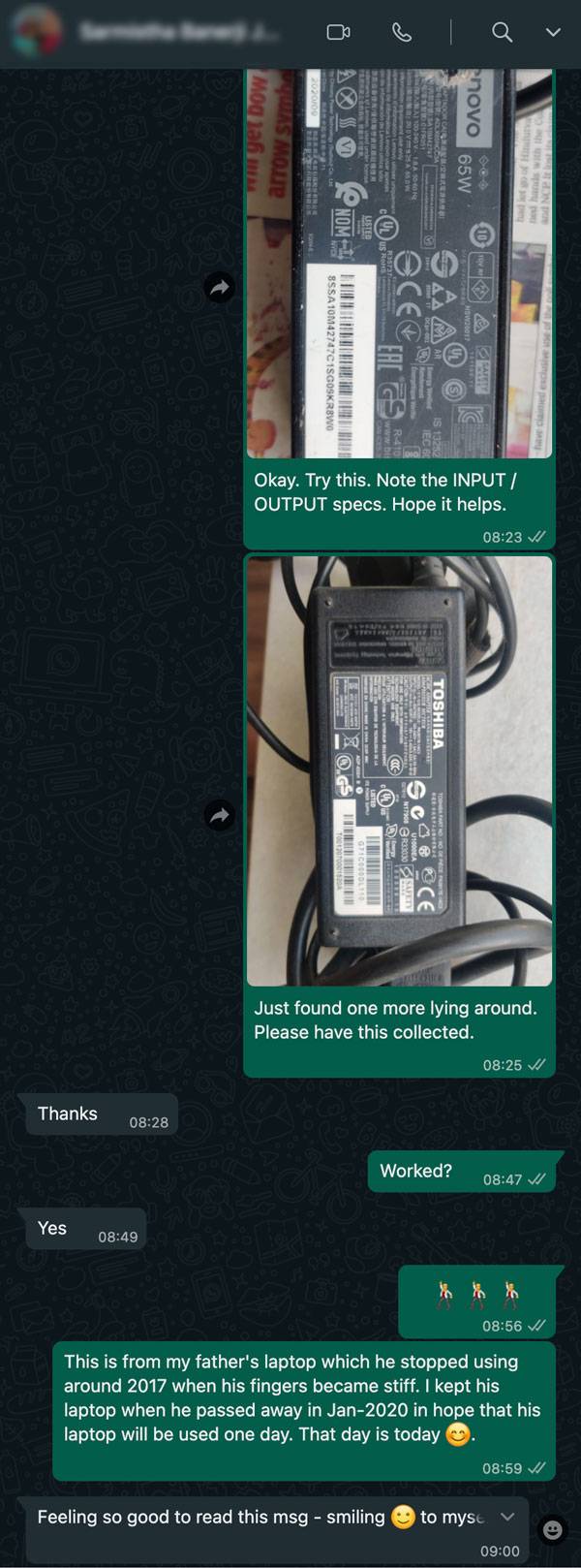
10 Oct Obsolescence, Death, Reuse, Rebirth
Early in the morning, I received a message from a friend requesting a charger for her laptop. She was working from home, and her laptop charger had stopped working. She faced the dilemma of either driving to her office or a store to buy a new one, which would spoil the convenience of working from home that she had been looking forward to.
After looking around, I found my son’s laptop, which we had purchased during the peak of the 2020 lockdown for his SFH (Schooling From Home). Unfortunately, the charger for my son’s laptop didn’t match the one my friend needed. However, I suggested that she collect the charger and see if it could be made functional. In India, we often rely on our resourcefulness to make things work, even expecting a mule to do a horse’s job.
Engrossed in reading the newspaper, I forgot about it until a flood of memories suddenly resurfaced from the depths of my subconscious.
Back in 1993, India was experiencing a rapid phase of computerisation. Institutions were setting up new rooms, called “Computer Rooms,” which were considered a source of pride for both the institution and the nation. These rooms were air-conditioned, and people had to remove their footwear before entering. Inside, intriguing machines called Desktop Computers were housed. They would start, or rather “boot up,” with DOS, and some even had Windows 3.1. It was around that time when men, including myself, fell in love with machines once again.
Having a computer at home was a luxury for middle-class families. Driven by our infatuation with this machine, my siblings and I incessantly pestered our late father to get one for our home. Initially, he resisted, considering it an expensive toy. However, my mother joined our chorus, extolling the virtues of computers for our education. Eventually, my father, a visionary man, realised that it was a toy he could play with too. After all, a computer with Windows 3.1 was a magical and versatile utility machine, second only to the TV, refrigerator, and window A/C.
In 1994, the first computer arrived at our house. It was an assembled one made by Patni Computers. My brother, sister, and I were thrilled to have this expensive toy we could show off. Not only was it huge and connected to various parts, but it also came to life like a pet animal, communicating with us and offering numerous games. It even went to sleep, just like we did. It created an instant sense of camaraderie. The only problem was that we didn’t quite know what to do with this new friend.
Minesweeper and Solitaire kept our hopes alive, fuelling the aspiration to use the computer productively one day. Meanwhile, at school, “Computer Education” was becoming increasingly important and rigorous. We learned about RAM, ROM, HDD, CPU, Motherboard, Mouse, Monitor, Keyboard, and more. We also learned the distinction between “Hardware” and “Software” (which back then required capital letters to be grammatically correct). We discovered that dropping “Hardware” on our toes would elicit an “Ouch!”, whereas “Software” wouldn’t. We also experienced the sinking of hearts and rising stress when “Software” malfunctioned, while fixing or replacing “Hardware” could upset our bank balance.
While we children were engrossed in clearing mines or stacking cards, we failed to notice another extraordinary revolution taking place.
My father tinkered with the machine when we weren’t using it. He saw its potential and started using it professionally. From a typewriter, he transitioned to MS Office, predominantly using MS Word. He even switched from physical cashbooks to Tally Accounting Software. We were pleasantly surprised when, within a few months of acquiring the big toy, he brought home another rich man’s toy—a “dot-matrix printer.” Some of you may recall the cacophony created by those dot-matrix toys while printing on perforated paper rolls!
On August 15, 1995, India woke up to yet another freedom with the introduction of Internet Services through Videsh Sanchar Nigam Limited (VSNL). The school curriculum now included an additional chapter on the internet, outlining the transformative changes the world would witness due to “The Internet” (with a capital ‘I’ and such a big ego!) in the decades to come. For most school-going children, including myself, “The Internet” was just another burden to prepare for exams.
But my father saw it differently. One day, upon returning from school to sweep mines on the computer, I noticed another boxy device blinking nearby. My father explained that it was a “Modem” that would enable us to connect to the world. At that moment, I couldn’t comprehend what the Internet meant for a household like ours. Did my father go mad? What a useless thing, a modem!
Needless to say, I was wrong.
In 1996, a friend who went to the US for higher studies visited me on vacation. He shared his email address to stay in touch. I accepted it, feeling slightly embarrassed because I didn’t yet understand what an email was or how to use it. However, with the modem at our house, we simply needed more knowledge. We made use of the complimentary email from VSNL. After connecting to the internet through the Dial-Up phone connection, which emitted beeps and boops before finally connecting, I sent an email to my friend. The popup read, “Mail Sent Successfully.” I leaned back, contemplating that within seven days or so, my friend would read the email and respond. In about a month, we would be updated on each other’s lives, eliminating the need to wait for his next visit, which was still six months away. It was in that magical moment that a spark ignited in my mind. From that very instant, I upgraded the status of the expensive “Toy” to the more respected “Computer”—the greatest machine of our era. I immediately aligned myself with my father’s earlier vision, and together, we delved deeper into the realm of computers.
Years flew by, and in circa 2012, countless changes occurred in the world of computers (fortunately, no longer capitalised) between 1995 and 2012. These changes transpired on a global scale, within the country, and most importantly, in our lives and homes. My father struggled to keep up with the evolving technology. Although he had upgraded the machine we purchased in 1994, by 2012, it felt like flogging a dead horse. His health deteriorated, his vision declined, and he began exhibiting the initial symptoms of Parkinson’s disease. The industry changes that benefited me bewildered him. Each new version of the Windows operating system and Microsoft Office left him lost, searching for familiar icons. I had left home in 1999 and would only see my parents every six months or so. A significant portion of those visits was spent fixing my father’s computer and teaching him the new ways. It was a challenging situation for him.
During Diwali in 2012, my siblings and I gifted my father a new laptop and my mother a tablet/iPad. My mother was thrilled with our unexpected generosity. My father now had a new toy, or rather, a new beast, to contend with. I set up all the software, migrated data from the old computer to the new laptop, and adjusted the settings to make it more comfortable for my father. However, there were limitations within the framework that Windows provided. Despite the challenges, my father persevered and accepted the new toy as a blessing, knowing he had no other option.
Meanwhile, my father’s health continued to decline rapidly. Sitting at his work desk for extended periods became unbearable. But my father was not one to succumb easily to fate. As I mentioned earlier, he had an extraordinary vision. He believed that he would overcome his health issues and return to using Tally and MS Office to run his business, which he had learned to manage online. With my mother as his loyal nurse, he underwent various treatments, each providing temporary relief but resulting in a gradual decline in his overall well-being. We had always known our father as a fearless lion, ever vigilant and ready to conquer the world. However, fate had other plans. Health, my dear friends, is a humbling force. Be prepared for it when it fades away. If possible, cherish it, nurture it, respect it, and love it while it is still within reach.
Fast forward to circa 2017. My father’s health had deteriorated significantly. The once new laptop, now outdated, remained mostly unused on his desk, serving as a constant reminder of his desire to regain his strength and return to using it. He would often assure me that it was only a matter of a few days before he would be back in action, using the computer again.
In 2018, my father called me one day and asked me to visit him at home. Despite being busy with work, I flew down to see him that evening. Upon arrival, I found him asleep, but my mother and I caught up on everything that had happened in the past few months. She informed me that my father spent most of his time sleeping due to his failing lungs, which left him frequently exhausted. The next day, when my father woke up, he was glad to see me. Ours was a traditional father-son relationship, characterised by respect rather than friendship, as is common nowadays. I never felt comfortable drinking or speaking loudly in his presence. He had an aura that commanded respect, and at times, even fear. On that day, my father expressed his realisation that he would no longer be able to use the laptop, and he urged me to take it. He explained that all the documents and accounts he had meticulously maintained until 2012 could be found on it. He entrusted me with the task of organising everything for the family.
It was the first time my father had ever expected something of me. Throughout my life, I had enjoyed the freedom to make decisions in various aspects, from my hairstyle and wardrobe to education, career, life partner, and lifestyle. While we may have had our differences, I inherited his stubbornness, which allowed me to prevail over his advice and decisions. Although I appreciated his trust in me to compile his assets, which my mother, siblings, and I were unfamiliar with until then, I also sensed that he was preparing to depart from this world.
Between 2018 and 2019, I made numerous trips to my parents’ place. More often than not, I would find my father either asleep or hospitalised. In his absence, my worried mother and I would boot up his laptop and explore the data files. When my father was at home and awake, we would seek clarification on various aspects, although his failing health and the time gap since 2012 meant that he often couldn’t recall specific details. Nonetheless, we spent time together trying to understand the data files, and during these moments, we would often discuss his life’s accomplishments, which remain part of our family lore to this day.
In January 2020, my father passed away, leaving us with many things, including his laptop. It held so many memories that I couldn’t bring myself to sell or give it away. Therefore, I decided to keep the laptop with me, hoping that one day it would serve a purpose again. I even considered giving it to my son when he needed one during the SFH 2020 lockdown, but ultimately opted to get him a new one. My father’s laptop would have its day.
And today is that day. I handed my friend my father’s laptop charger, and voila, her computer came back to life!
Nothing is obsolete or dies completely. Everything has the potential to be reused, and everyone experiences a rebirth in one form or another. We live on in one form or another.


My sincere thanks to Sudip Bajpai (Faculty of English, CAT Mentor, Interview Prep Guide) for editing the article, and saving me the embarrassment of the many language mistakes (spelling and grammar) I had made.
If you liked this post, then you may consider reading The God in Chemistry and Hinduism, Shraddh and a Miracle also
I also recommend reading the book ‘The Wave Rider: A Chronicle of the Information Age‘ by Ajit Balakrishnan. The book covers the growth of Indian Computerisation in the 1990 and early 2000 along with many interesting anecdotes interwoven beautifully.



Anurag Sinha
Posted at 16:17h, 10 OctoberTimeline of technology growth in our lives and how each of us adjusted to it individually as well as a family unit. I could relate to many things in memoir.
irustima
Posted at 09:28h, 11 OctoberI guess we all rode this wave of technology. I am so happy you related to this. :)
Gopinath Chandroth
Posted at 11:38h, 26 SeptemberAmit
It is a moving story. I could relate to it completely. The way you have connected the initial request from a friend for a charger and how finally your dad’s laptop charger came into use, is wonderful and a poignant validation of your final conclusion- everything gets another life, another go at life. Your dad must be smiling from heaven.
irustima
Posted at 10:17h, 28 SeptemberThanks Gopi, I am glad you related to the story!